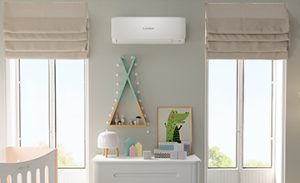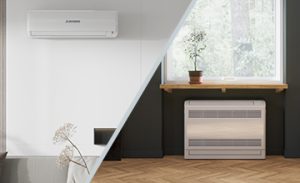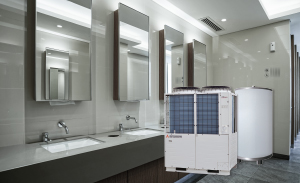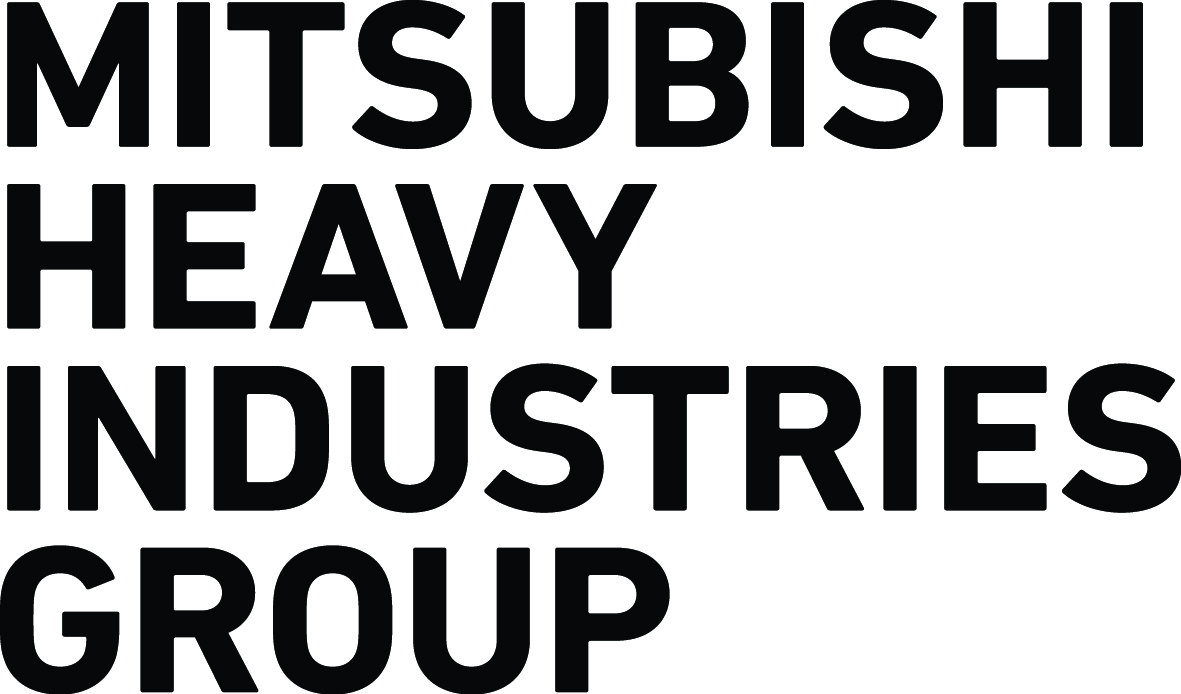How To Improve Indoor Air Quality In Your Home
 With the colder weather and the lingering COVID-19 situation, now more than ever it’s important to try and keep ourselves and families healthy. While the basics are obvious – regular exercise, eating healthy, plenty of sleep – did you know that the quality of air we breathe also has a huge impact on our overall health?
With the colder weather and the lingering COVID-19 situation, now more than ever it’s important to try and keep ourselves and families healthy. While the basics are obvious – regular exercise, eating healthy, plenty of sleep – did you know that the quality of air we breathe also has a huge impact on our overall health?
While we’d like to think that all the air we breathe in our homes is nice and clean, but the truth is that there are many hidden pollutants that still find their way inside our homes. These include dust, smoke, pollen, mildew, mould, bacteria and animal hair to name a few. These pollutants and fine particles can have detrimental health effects which range from lethargy, sneezing and shortness of breath to more severe long term effects such as asthma.
With these potential effects known, it’s important to try and ensure that ensure the best indoor air quality in our home – especially with so many of us spending much more time inside. We look at a few easy ways you can improve the indoor air quality of your home below.
ensure good ventilation
Decent ventilation and airflow are crucial for good indoor air quality. Opening windows and doors for a few hours each day will help remove stagnant air while allowing fresh air to circulate. If you’re living in a built-up area or next to a main road choose the time of day wisely. Aim for early morning or late evening when traffic levels are at their lowest to ensure best quality air.
It’s also important to ensure you use exhaust fans when cooking. Gas stoves and ovens can produce pollutants so when you’re working in the kitchen, be sure to use exhaust fans or open a window to help filter and circulate the air.
Keep it Clean
Avoiding creating clutter and cleaning your house regularly can help greatly with improving indoor air quality. Focus on areas that collect the most duct and pollutants. Here are some tips we recommend:
- Avoid smoking inside at all costs. Smoking produces a large amount of pollutants that drastically affect air quality.
- Regularly vacuuming all floors using a high-quality vacuum (with HEPA filters if possible).
- Cleaning all flat surfaces twice a week to remove dust. It’s recommended to use a wet cloth rather than a duster which can sometimes spread dust.
Keep it Dry
Humid and moist conditions can help breed mould and mildew which can trigger respiratory issues like allergies and asthma. To avoid this, we recommend the below:
- Ensuring good ventilation with the regular opening of windows and doors.
- Avoid drying of clothes indoors as this releases a lot of moisture straight into the air.
- Keep an eye on indoor plants. Indoor plants are known to filter air and improve air quality but overly moist soil, can be a breeding ground for mould and mildew.
- Ensuring you use your bathroom’s exhaust fan when showering. Let it run for 10mins after you finish to help remove moisture.
- Using your heat pump’s’s ‘Dry’ mode to remove humidity from the air.
Clean Your Air heat pump’s Filters
Most modern heat pumps contain filters that can help improve air quality by removing moisture and airborne particles. Mitsubishi Heavy Industries split systems incorporate our ‘Clean Air Technology’ while includes three separate filters and multiple functions designed to capture and eliminate airborne particles, odours and bacteria. You can learn more about how MHI split systems can help improve indoor air quality via our blog here.
While these filters help, it’s important to keep these clean and free of dust to ensure they work properly. We recommend cleaning them every month during heavy use and every few months during minimal use to ensure optimum performance the best air quality. We’ve put together a handy guide on how to clean your MHI split system filters here.
Get A Professional In
While cleaning the filters of your heat pump is relatively simple and something you can do yourself, we recommend having your system professionally cleaned and serviced once a year. Professionals can check the system and offer a proper deep clean, including small nooks, crannies and other areas that you may not have access to.
If you’d like to speak to a professional about having your system cleaned, you can visit our contact us page and leave some details.
If you’d like to speak to an installer about replacing or upgrading your heat pump, simply visit our Request a Quote page, leave some details and we’ll get an installer to get in touch!
If you’re considering replacing our upgrading your heat pump with a Mitsubishi Heavy Industries system, leave some details in the form below and we’ll get an authorised installer to get in touch to provide a quote!
You might also be interested In




















